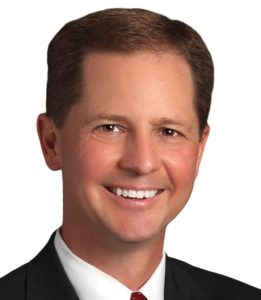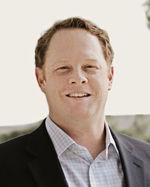Nearly two months after newspapers reported hundreds of allegations of sexual misconduct by ministers and volunteers in churches aligned with the Southern Baptist Convention, a Texas lawmaker is sponsoring legislation to make it harder for sexual predators to move from church to church without detection.

Rep. Scott Sanford
Republican Rep. Scott Sanford, who also serves as executive pastor over stewardship and operations at Cottonwood Creek Church in Allen, Texas, recently filed a bill to give immunity from civil liability to churches or other non-profits that in good faith report allegations of sexual abuse to an individual’s current or prospective employer.
“Sexual abuse thrives in secrecy,” Sanford said Monday in comments before the committee on judiciary and civil jurisprudence in the Texas House of Representatives. “This bill shines a light so victims can come forward and charitable organizations can end the silence that allows predators to move between organizations.”
The bill, drafted with assistance from the Southern Baptists of Texas Convention and Ethics and Religious Liberty Commission of the Southern Baptist Convention, comes in response to investigative reporting in February by the Houston Chronicle and San Antonio Express-News documenting 380 Southern Baptist church leaders and volunteers who faced allegations of sexual misconduct in the last 20 years and more than 700 victims.
One installment of the three-part series focused on those who were able to find jobs at churches despite convictions or pending charges.
Pastor Ben Wright, chairman of the Texas Ethics and Religious Liberty Committee of the Southern Baptists of Texas Convention, said one reason churches fail in their moral responsibility to warn about potential threats is the fear of being sued.
“In fact, when circumstances aren’t entirely clear, churches sometimes feel reluctant to warn other organizations because they feel some allegiance to the principle of innocent until proven guilty,” Wright, pastor of Cedar Pointe Baptist Church in Cedar Park, Texas, told the committee.

Pastor Ben Wright
Wright said it is common for churches to receive legal counsel telling them to say little or nothing when asked about a former employee for fear of litigation.
“We sense that more churches are adopting the common business practice of sharing with prospective employers merely basic facts like job title and dates of employment,” Wright said. “We know of churches and institutions that have written policies never to disclose the reason for a termination to anyone seeking a job reference. The sole purpose of these policies is to minimize exposure to civil liability.”
“I don’t assume that you follow Southern Baptist media, so you may or may not know that situations are unfolding right now in Texas and elsewhere to which this legislation is immediately relevant,” the pastor said. “In at least one recent occasion a victimized woman felt compelled to go public with her story in order to protect others when another ministry hired the man who exploited her.”
“She had to go public to protect others,” he said. “His previous employer was following the strict non-disclosure policy its lawyers had advised.”
While current law requires mandatory reporting of suspected child abuse, Wright said, there is no legal obligation for a church or ministry to pass on information about possible sexual abuse or harassment involving an adult.
“We do not want the livelihoods of genuinely innocent people to be harmed,” Wright told lawmakers. “We want churches to make responsible decisions when they share sensitive information, but we are grieved by the harm done to victims, and we want churches to feel freedom to make these difficult decisions without fear of legal reprisal.”
Wright said Southern Baptist leaders advise churches to protect the vulnerable whether they are shielded or not, but lawmakers can make it easier for congregational leaders to do the right thing.
“Faced with these circumstances, it can feel like the easiest and maybe the safest thing is to do nothing, especially when the circumstances aren’t crystal clear,” he said. “We cannot afford to do nothing, but we also cannot afford literally to be sued for fulfilling our moral responsibility.”
“We are going to tell our churches to do the right thing,” Wright told the panel. “We are asking you to help us encourage them to that end.”
“This legislation will not solve the entire problem, but it will eliminate one obstacle,” he said. “It will enable our convention of more than 2,600 churches say when you act in good faith, when you do what you need to do, you can do it without fear because the state of Texas stands behind you.”
Previous stories:
Church fires worship leader five years after sexual abuse confession
NewSpring Church denies liability for volunteer accused of child sex abuse
SBC leader steps down after newspaper expose about abuse and coverup
One-time VBS volunteer at Southern Baptist church charged with violating sex offender registry rules
SBC leadership group reserves judgment about churches named in media reports about abuse
Abuse survivors, activists to rally ‘for such a time as this’ a second time
SBC president calls for investigation of churches accused of harboring sexual predators
Al Mohler says he was wrong about C.J. Mahaney
Survivor says SBC leaders’ response to abuse revelations little help to victims
Newspaper story on sexual abuse in SBC was a long time coming for activist Christa Brown
Related commentary:
Peggy Haymes | The national conversation about sexual abuse by Baptist clergy is important. But it doesn’t go far enough
Alan Bean | Clergy sex scandal proves Dale Moody was right about ‘once-saved-always-saved’ as a dangerous heresy
Jon Singletary | Turn around and walk against the system of sexism in the Church
Bill Leonard | An ‘apology’ is not ‘repentance’: responding to clergy sexual abuse and other crises in American Christianity
Mary Day Miller | Addressing clergy misconduct: American Baptists do things differently
Jann Aldredge-Clanton | God is not a guy and neither am I: male dominance and sexual abuse in churches
